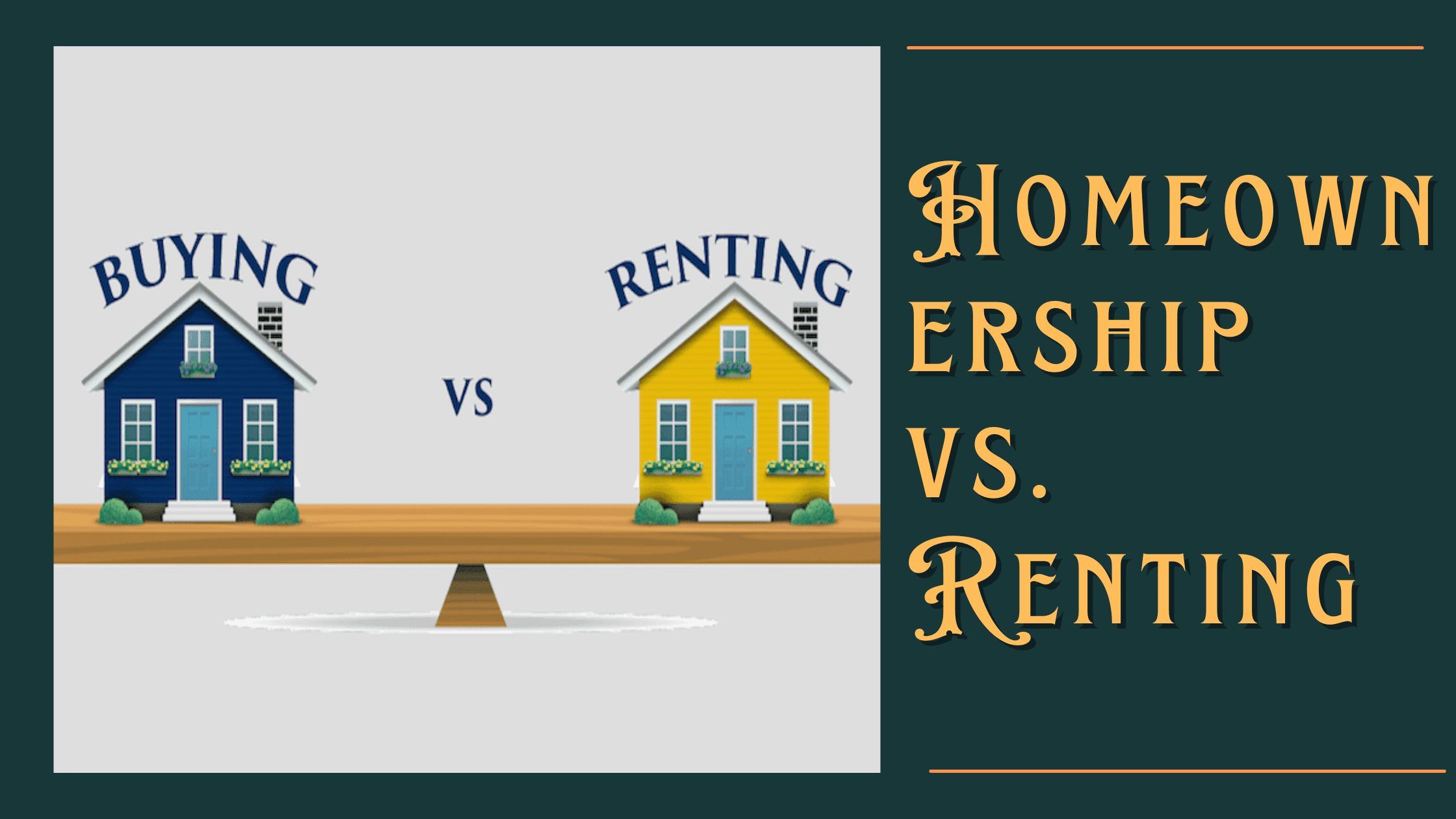
Homeownership vs. Renting: Making the Right Choice for You
- Home
- Homeownership vs. Renting: Making the Right Choice for You

Ontario Real Estate Broker Qualities: What Sets the Best Apart
Why invest in Luxury Real Estate in Ontario?
Property Prices in Ontario: Understanding the market fluctuation
Best Real Estate Agent Ontario: In Pursuit of Excellence | Unveiling Ontario's Top Real Estate Agent
Property Prices in Ontario: Trends, Insights, Analysis
Buying house vs renting an apartment – first-time buyers often face this dilemma. This debate between homeownership vs. renting is a critical cornerstone of real estate services. The decision to buy or rent isn’t just about shelter; it’s a pivotal financial and lifestyle choice. Understanding the nuances of each option empowers individuals to make informed decisions aligning with their goals.
So, is it better financially to rent or buy a house? There is no single answer, as it depends on analyzing several factors beforehand, and one of them is hiring a professional realtor or a real estate agency.
Real estate services are pivotal in guiding this decision-making process, offering insights into market trends, financial implications, and the long-term impact on wealth accumulation. In a landscape where housing represents both a place to live and an investment, making an informed choice is paramount for individuals.
Please read this post as we explore renting vs. buying a house, pros and cons, to help you make an informed decision.
In this journey of homeownership vs. renting, let’s start with the pros of homeownership. Owning a dream home offers multifaceted advantages, notably building equity and wealth. With each mortgage payment, homeowners gradually increase their stake in the property, cultivating equity that can be leveraged for future investments or emergencies.
Personalization is another perk—customizing a space to individual tastes fosters a sense of belonging and stability. Homeownership proves a sound financial investment, historically appreciating over time. This appreciation, coupled with potential tax benefits, reinforces the idea of homeownership as a vehicle for wealth accumulation, providing a place to call home and a cornerstone for long-term financial security.
Homeownership vs. renting offers flexibility and lower initial costs, making it an ideal choice in various scenarios. Flexibility reigns supreme—renters can quickly relocate for career opportunities or lifestyle changes without the ties of property ownership.
Lower upfront costs mean no hefty down payments or maintenance expenses, allowing immediate savings or investments elsewhere. For those exploring different neighbourhoods before settling, renting provides the freedom and financial flexibility to navigate life transitions smoothly.
Homeownership entails mortgage payments, combining principal and interest, influenced by loan terms and interest rates. Property taxes are recurring expenses varying by location and value. Additionally, homeowners cover maintenance and insurance costs.
Renters pay monthly rent, fixed or subject to increases per lease terms, and often a security deposit upfront, refundable upon lease completion. Renting lacks equity building but typically absolves tenants from property taxes, maintenance, and insurance responsibilities, offering a more predictable monthly expense structure.
Maintenance and responsibilities are another significant factor influencing your decision regarding homeownership vs. renting. Homeowners bear maintenance and repair responsibilities, ensuring property upkeep and renovations. From plumbing to structural issues, these costs fall on the homeowner’s shoulders, demanding time and financial commitments.
Renter responsibilities are lighter, typically limited to minor upkeep and reporting issues to landlords or property managers. Renters enjoy the ease of having major repairs handled by the property owner, offering convenience and predictability in maintenance matters.
Personal lifestyle and future goals heavily influence the homeownership vs. renting decision. Renting an apartment suits individuals seeking short-term flexibility, such as professionals exploring career opportunities or couples uncertain about settling in a particular city. Homeownership aligns with long-term stability, ideal for growing families or individuals invested in a community’s future.
For example, renting might suit students seeking temporary accommodations, while homeownership may align with retirees desiring a stable, owned space for their golden years. Aligning housing choices with life stages ensures residences cater to evolving lifestyle needs and future aspirations.
To decide homeownership vs. renting, assess your circumstances against a decision-making framework:
Calculate your budget, determining mortgage affordability, down payment, closing costs, and ongoing expenses. Use our rent vs. buy calculator to get an overall idea. Consider long-term financial goals and how homeownership or renting aligns with them.
Evaluate short and long-term lifestyle needs, such as career plans, family growth, or desired location. Reflect on the level of commitment you’re comfortable with concerning property maintenance and stability.
Research trends in your desired area, analyzing property values, rent costs, and market projections. Assess the potential for property appreciation or rent increases over time. Envision your future goals and how housing choices contribute to these aspirations. Consider the impact on savings, investment opportunities, and overall financial health. Seek advice from an expert real estate professional.
Embrace the housing decision that resonates with your unique circumstances and aspirations. Whether it’s the stability of homeownership or the flexibility of renting, prioritize what aligns with your lifestyle, financial goals, and long-term plans. Consider your current needs and future aspirations—there’s no one-size-fits-all answer. Buying a house vs renting an apartment comes with unique challenges and benefits.
Do you want to find out more interesting facts on homeownership vs. renting? Call Mr. Sahil Marwaha, one of the best real estate advisors near you. With his years of excellence and knowledge in real estate, you pave the way for a more fulfilling and harmonious living experience.